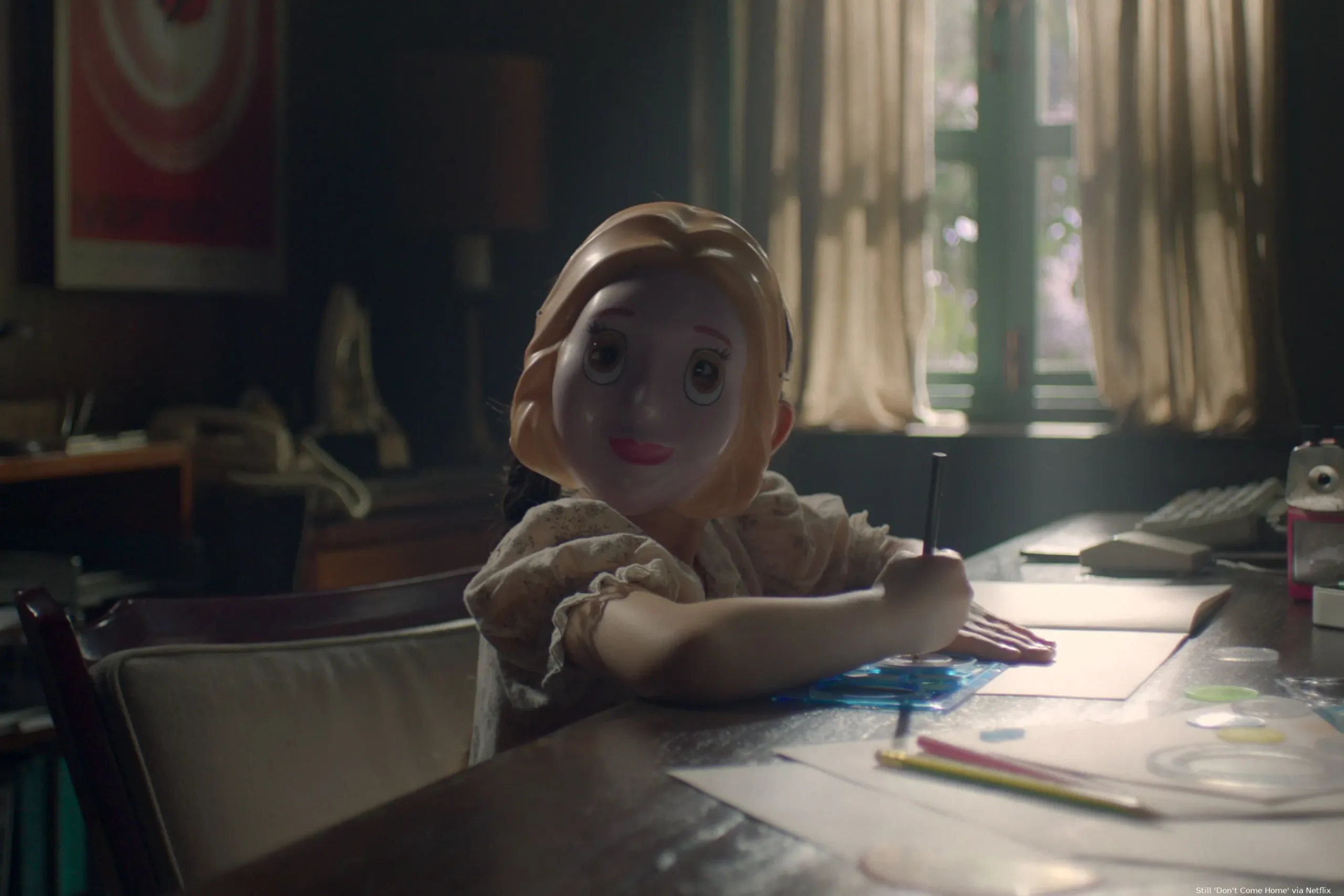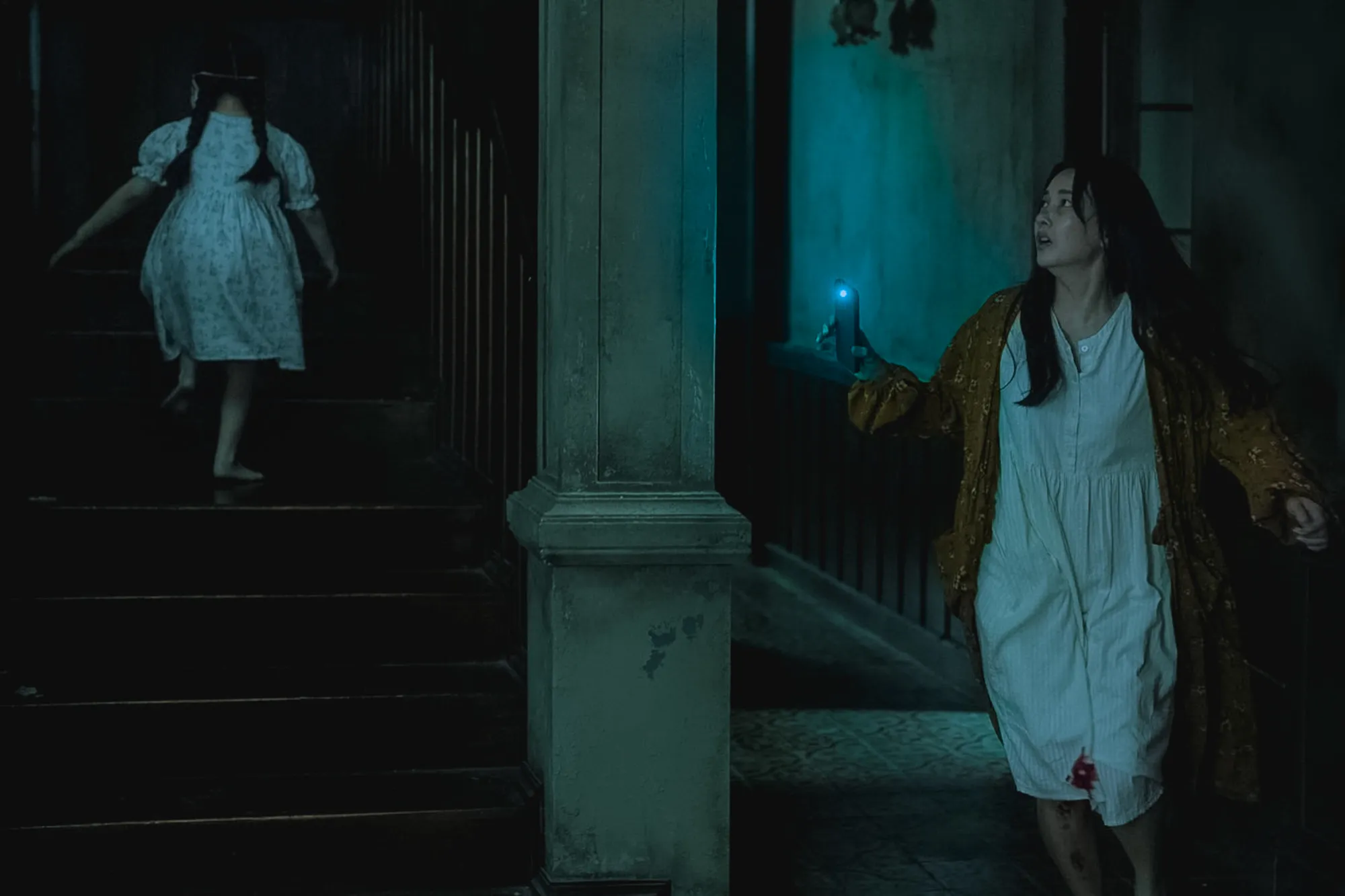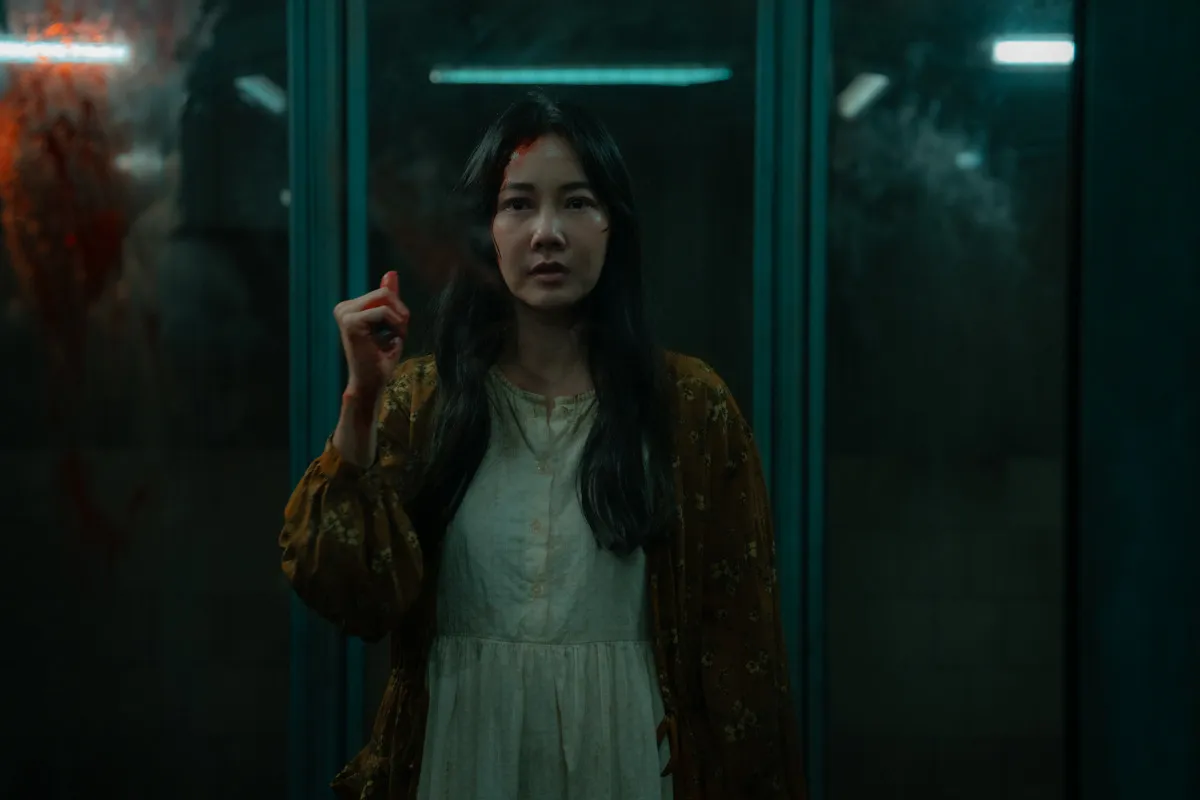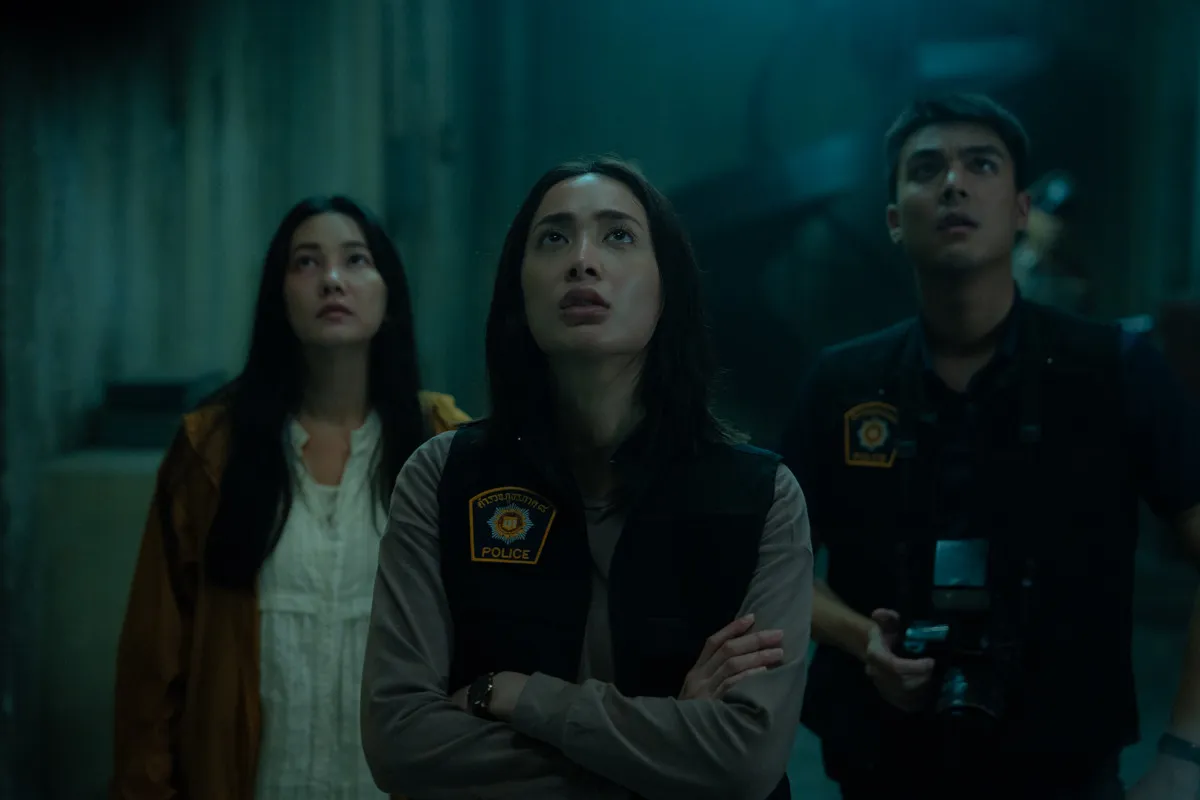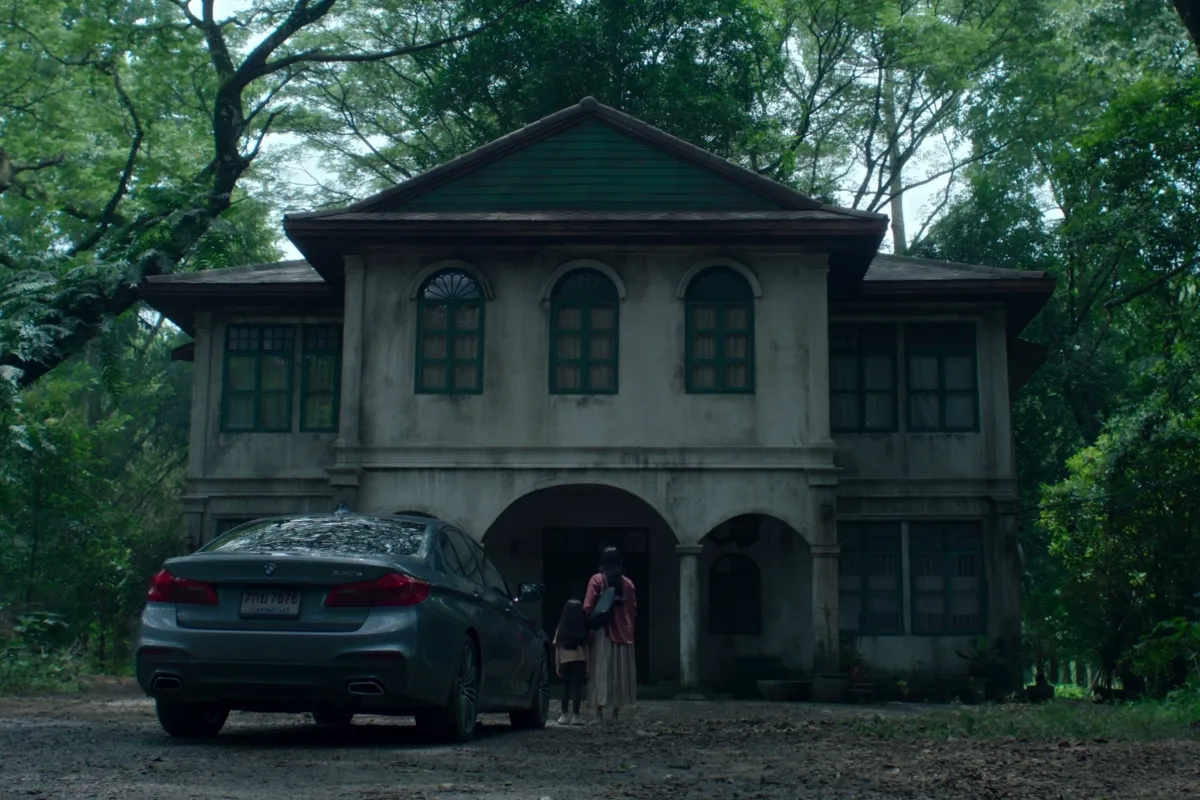Have you ever come across a show that starts out like your standard haunted house story only to pull the rug out from under you with an ingenious twist? That’s exactly what happens with Don’t Come Home, a new suspenseful series from Thailand now streaming on Netflix. Though it begins by seemingly treading familiar horror grounds, rest assured this one has far more intriguing depths to plumb.
The six-episode miniseries follows a mother, Varee, who flees to her remote childhood home with her young daughter in tow, hoping to find shelter from dangers in their past. But strange occurrences soon begin plaguing the run-down old mansion, and before long the girl vanishes without a trace.
While the first episode leaves us with haunting images and a pervasive sense of unease, it’s only the beginning. As Varee joins with a tough detective to search for answers, their investigation penetrates deeper into long-buried secrets and reveals this tale has mind-altering revelations in store.
Over the course of its tightly-paced runtime, Don’t Come Home deftly shifts moods from chilling frights to gritty mystery before unfolding its most stunning surprise. Come read on to learn how this series effortlessly straddles genres to craft a uniquely twisted tale of fate, grief, and the mysteries of time. I promise you’ll find plenty here to keep your thoughts spinning long after the final chilling moments.
The Twisted Timelines of Don’t Come Home
This Thai Netflix series weaves a masterfully convoluted tale. At first glance, it seems a standard haunted house yarn—until the mind-bending twists unfold. Varee flees with daughter Min to the remote Jarukanant mansion, hoping its empty halls offer refuge from Varee’s abusive husband. But strange events soon plague the old estate, culminating with Min’s chilling disappearance.
As Varee joins tough detective Fah investigating, their search takes a surprising turn. Flashbacks reveal Panida, Varee’s grandmother, was similarly embroiled in paranormal mysteries here decades prior. Panida’s relentless scientific spirit led her to tinker with time itself after tragedy—with shattering consequences.
We learn Panida crafted a genuine time machine, unwittingly warping the very fabric of the mansion. Now portals punctuate reality, allowing hopscotching between eras. Min, plucked from her nightmares, finds herself a little girl in Panida’s care amid the machine’s first success. Yet more tests follow, each rupture in the timeline spinning further out of control.
As Varee materializes decades in the past to face Panida, recognition is futile. Both women are fated pieces in an inexorable loop, as Min is doomed to live each life anew while giving rise to her later self. Though clues coalesce by the finale, more questions linger—about the machinations of time and whether any soul can break free of circumstance. Don’t Come Home leaves viewers pondering the very nature of existence itself.
Through deftly handled reveals, it matures from haunted house hijinks into a head-scratching knot worthy of sci-fi’s greats. Perhaps some technical details go unaddressed, yet the intricate, sentimental chronology rewards dedicated scrutiny. For fans of experience-bending mystery, this series offers cerebral scares that burrow deep beneath the skin.
Flesh and Blood: The Characters of Don’t Come Home
At its heart, this thriller is a showcase for some of the most multilayered performances I’ve seen. Each character contends with hopes, fears, and demons that deepen as the mysteries unwind.
Take Varee, a mother desperate to shield her daughter from harm. Flashing back to her abuse survivor, we understand why the Jarukanant estate seemed a refuge—and how traumatic its secrets became. Actor Woranuch imbued each nuanced reaction with emotional gravity, from fledgling defiance to shattered grief.
Japan as young Min also resonated. Beyond fearful screams, her wide eyes conveyed a child’s powerlessness against looming threats. Yet flashes of resilience in those eyes hinted at her strength too. Their bond felt utterly real, right down to Min’s teary goodbyes.
Panida owned perhaps the most complex arc. Grieving scientist by day, unhinged patron by night, Cindy shifted flawlessly between personas. Her every action, however misguided, boiled down to love and loss – emotions any parent can relate to, even in this twisted tale.
And Fah, relentlessly piecing together a case beyond reason’s reach. Pitchapa imbued the stalwart inspector with quiet conviction, never doubting even as the disturbing truths came to light. Her grounded presence anchored the mounting chaos.
More than pawns responding to plot strings, these souls lived and breathed through every meticulous detail. It’s a testament to the skilled hands that imagined them so vividly into life, as well as the performers who channeled tangible humanity from words on the page. In the end, it’s the characters—not twists alone—that burrow deepest under our skin.
Reflections of the Heart: Themes in Don’t Come Home
Under this series’ visually stunning surface lies a deep exploration of what connects us all—our capacity for love and its enduring effects across the long arc of time.
Family serves as the show’s beating heart. Min and Varee’s bond feels authentic in every fearful glance. Panida’s actions, however misguided, stem purely from maternal devotion warped by private torments. Even the mansion seems animated by a soulful past deeply tied to those dwelling within.
Time itself emerges as another character, a sprawling tapestry stitching humanity’s fleeting moments into a fabric beyond mortal eyes. The machine’s distortions reflect life’s cruel ironies—how the present echoes with regrets of roads not taken in our past.
Yet for all its tragedy, Don’t Come Home finds hope where love survives calamity. Min and Varee’s reunion, though bittersweet, shows affection can transcend even death’s divide. Their saga underscores empathy’s power to heal old wounds and let go of regret.
Subtly, it questions society too. Panida’s priorities and Fah’s undervalued role raise thought-provoking implications about gender roles. Ultimately the series leaves on a contemplative note—are we masters of destiny, or merely eddies in its unknowable flow?
Through deft metaphor and sombre visuals lending depth to joy and fear alike, Don’t Come Home weaves a poignant tale to linger in the heart. It sees humanity not as summed by moments but connected across the corridors of time by fleeting glimpses of grace.
Behind the Scenes of a Nightmare: Production of Don’t Come Home
Part of what hooks you from the start is how seamlessly this series shifts between chilling dread and tantalizing mystery. Let’s take a look behind the curtains at how it achieves this so effectively.
Right away, the rickety Jarukanant estate practically becomes a character in its own right. Between dusty antiques and creaking floorboards, set decorators transport us straight to the story’s heart of darkness. Cameras linger in just the right spots to let imaginations run wild.
But it’s not just what we see—the unsettling musical score and perfectly-paced jump scares keep viewers constantly peering over our shoulders. Even light and shadow are put to exquisite use, cloaking foreboding secrets in just enough shadows to feel their lurking presence.
Tight directing keeps multiple tangled threads spinning at top speed without ever losing us. Clever interweaving of past and present episodes underscores how well this narrative was structured from the start.
Most impressively, the crew finds a way to balance richly layered characters, twists on top of twists, and genuine chills. Not an easy task, but they pull it off with flair.
All in all, the impressive production talents behind this series were clearly a team determined to burrow under our skin. For fans of psychological scares and twisted mystery, Don’t Come Home is expertly crafted entertainment that will have minds buzzing for nights to come.
More than Meets the Eye: Don’t Come Home’s Innovative Genre Blending
This series manages to craft something truly unique by thoughtfully working across genre lines. While certain touchpoints emerge, it puts its own spin on expectations at every turn.
Shows like Dark become the obvious comparison for mixing psychological scares and intricate timelines. Yet Don’t Come Home grounds its convolutions in emotion rather than cold calculation. And where is the heart here versus propelling mysteries alone?
Compared to formulaic haunted house yarns, the layered characters feel strikingly real. Rather than mere obstacles, each one’s haunts cut close to universal human fears. And twists emerge not just to shock but to strengthen thematic undercurrents.
Among Asian horror hits unafraid to warp perception, few balance social insight so seamlessly. Panida’s journey highlights society’s unequal pressures, while her finale finds empathy even in madness.
All this innovation stems from a confident understanding of horror, sci-fi, and drama’s unique strengths. Rather than compromise, it allows each genre to enhance the others at perfect turns. The result feels greater than the sum of its parts.
Don’t Come Home sets a new bar. By thoughtfully integrating varied storytelling forms, it unleashes nightmares that burrow deepest under our skin and leave lasting reflections long after the final frames. Its refreshingly heartfelt twists may inspire new pioneers for years to come.
Beyond the Boundaries: Don’t Come Home’s Lingering Impact
Overall, this series delivers a truly thought-provoking ride. While certain technical aspects could improve, Woottidanai Intarakaset presents a complex, emotionally resonant narrative worthy of global acclaim.
Make no mistake—this one will burrow under your skin. Praise is due for balancing intellectual complexity and visceral frights so seamlessly throughout lean, propulsive episodes. Kudos too for grounding the bizarre in the universal struggles so many can relate to.
Of course, like any pioneering work, not all mysteries find answers. Yet for a meticulously crafted first season, Don’t Come Home leaves few stones truly unturned. If yearning for a cerebral scare that lingers with layers still to peel, look no further.
Though certainly not without flaws, its strengths far outweigh minor shortcomings. For any lover of psychological thrillers that challenge as much as entertain, this sci-fi thriller is a must-watch experience. I expect discussion of its provocative implications will echo for years to come.
My advice? Clear your schedule, dim the lights, and immerse without reservations. This series dares viewers to confront life’s enduring questions with imagination and an open mind. For an unforgettable small-screen adventure beyond all limits, Don’t Come Home delivers—and then some.
The Review
Don't Come Home
While certain technical details could be improved, Woottidanai Intarakaset's ambitious direction takes tiny-sized risks that pay off tenfold. For any fan of ingenious storytelling willing to unravel layered subtleties, this sci-fi stunner offers rewards in spades.
PROS
- Deeply layered, emotionally complex narrative and characters
- Expertly crafted mystery keeps viewers guessing.
- Impressively balances multiple genres throughout
- Gorgeous visuals and unsettling soundtrack
- Tight, propulsive storytelling keeps episodes lean.
CONS
- Certain technical plot points left unexplained
- Pacing noticeably slower in the first episode
- Impact lessened if viewing out of sequence









































